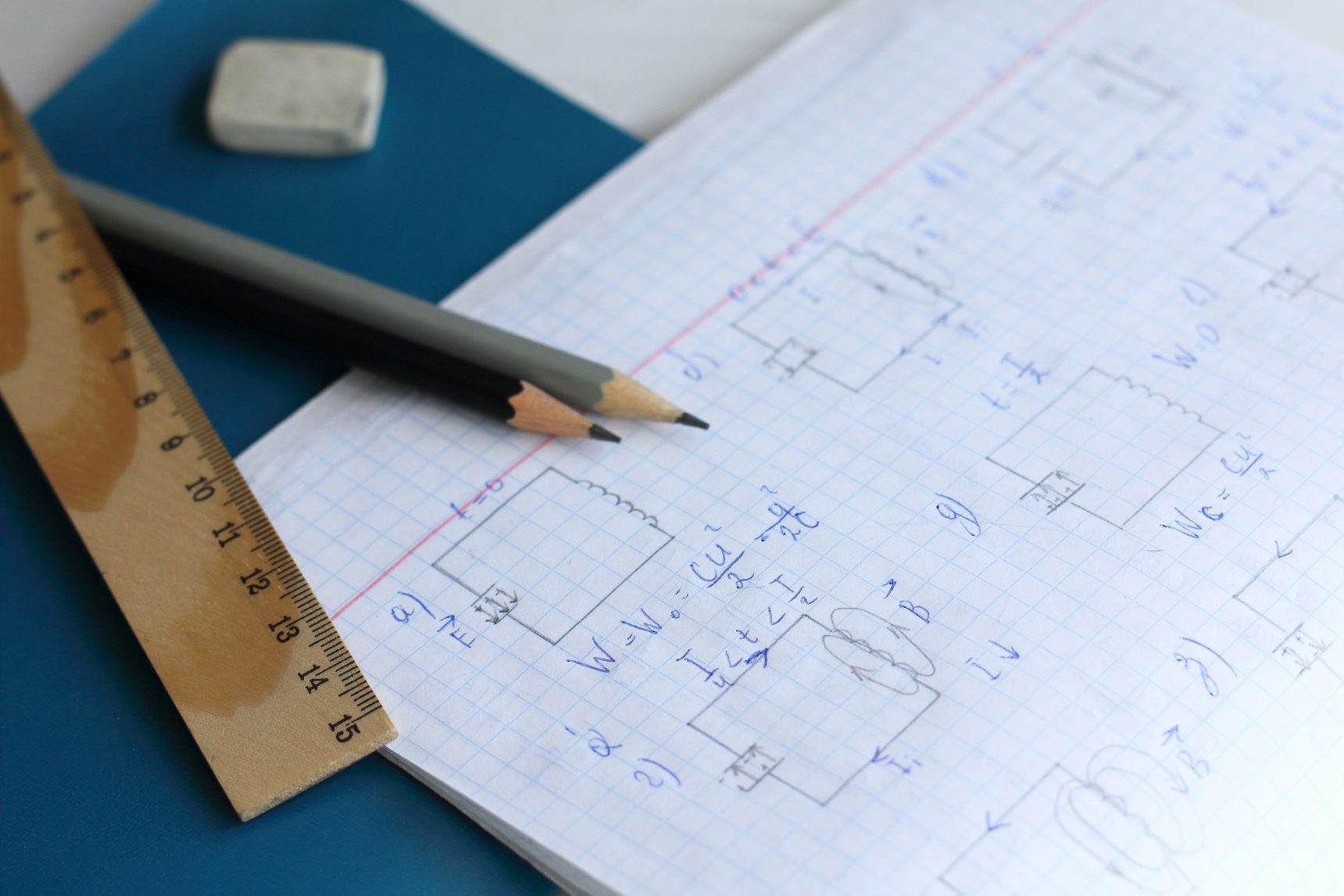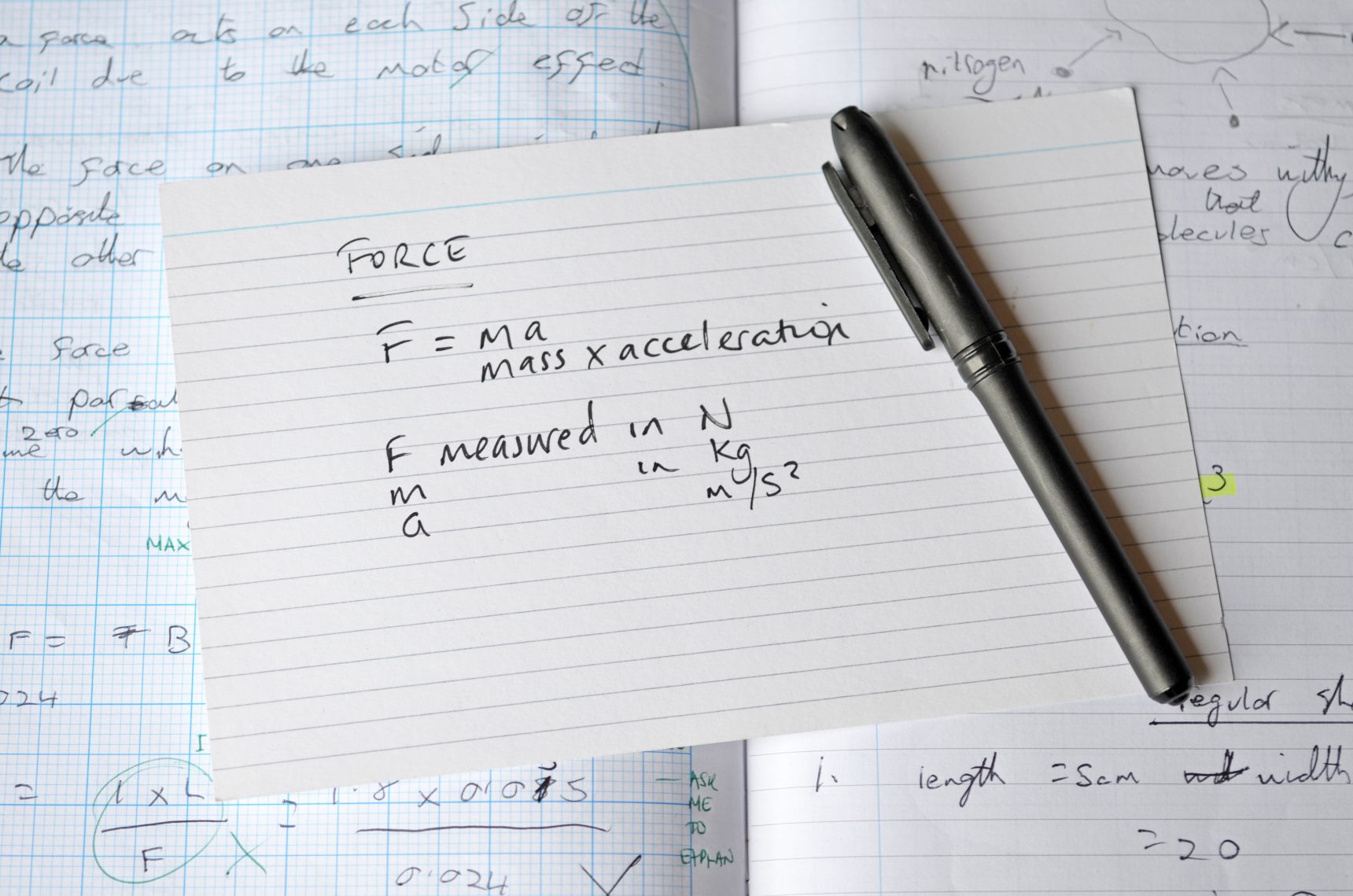Contents:
- What content is covered in A Level Physics?
- How is A Level Physics assessed?
- Is A Level Physics hard?
- What grades do you need to do A Level Physics?
- What skills will you develop when studying A Level Physics?
- Where can A Level Physics lead you?
- What subjects go well with A Level Physics?
- Do you need to study A Level Maths alongside A Level Physics?
What content is covered in A Level Physics?
A Level Physics explores the interactions between matter, energy, and force.
Many key topics, such as electric circuits, moments, and nuclear radiation, will be familiar from GCSE. However, while GCSE Physics involves a lot of rote memorisation, A Level Physics will require a deeper understanding of topics. You will also be introduced to more advanced concepts in particle physics and quantum mechanics, which will challenge you to look at everyday concepts, like light, in a new way.
A Level Physics relies heavily on fundamental GCSE and A Level Maths skills. Across all exam boards, there is also a strong focus on practical techniques.

How is A Level Physics assessed?
The assessment format may vary between exam boards, but typically you can expect to sit 3× written exams:
- 2× exams that assess module-specific content. These are made up of multiple choice, structured questions, and extended response questions.
- 1× exam that assesses content and skills across the entire course. This is made up of structured and extended response questions only.
You are also expected to complete a series of lab practicals. These experiments will relate to the topics you learn in class and go towards earning a ‘Practical Endorsement’ in physics.
The Practical Endorsement does not count towards your final grade, but it is a requirement for most undergraduate physics (and related) courses.
Is A Level Physics hard?
With a pass rate of 95.1% in 2023, Physics is considered a challenging A Level course.
Success in A Level Physics goes beyond simply plugging values into mathematical formulas. It requires a thorough understanding of the underlying principles and the ability to apply the right formulae to specific problems.
The A Level Physics curriculum is designed to be cumulative. This means that concepts and principles from earlier topics are often essential for understanding more advanced material. If you struggle with the basics, it can make it difficult to keep up. To excel in A Level Physics, it’s crucial to maintain a consistent learning pace and ask for help when needed.
The maths skills required for A Level Physics, while significant, may not be as daunting as they seem. You’ll need a solid foundation in basic maths skills, but you won’t encounter any complex mathematical concepts.
So, if you’re up for the challenge and have an interest in understanding the fundamental laws governing our universe, A Level Physics is an exciting and rewarding path to pursue!

What grades do you need to do A Level Physics?
If you’re interested in pursuing A Level Physics, most sixth forms and colleges will ask you to meet certain requirements:
- At least Grade 4 in five GCSEs, including English Language
- Grade 5 or above in GCSE Maths – around 40% of exam marks are awarded for the use of maths, so you’ll need to be confident in fundamental maths skills
- Grade 6 or above in GCSE Physics
Check the specific course requirements of the institution you’re intending to study at on their website or contact their admissions team directly.
What skills will you develop when studying A Level Physics?
Even if you don’t plan to take physics beyond school, A Level Physics will teach you many transferable skills, including problem-solving, critical thinking, and data analysis.
You will become proficient in conducting scientific experiments and communicating your findings clearly and concisely. By studying A Level Physics, you will also learn to apply the scientific principles taught in class to solve real-world problems.
These skills will put you in good stead for a variety of academic and professional STEM careers.
Top tips for studying A Level Physics
- Understand the basics – Ensure you have a strong grasp of fundamental concepts from GCSE physics. A solid foundation is crucial for success in A Level Physics.
- Scrub up on your GCSE Maths – A Level Physics relies heavily on fundamental GCSE Maths skills. Ensure you’re comfortable with unit conversion, equation manipulation, and graph interpretation, as these are essential for physics.
- Develop your problem-solving skills – Physics involves a lot of problem-solving. Regularly practise solving problems from textbooks, past papers, or online resources to reinforce your understanding. You can find a bunch of exam questions organised by topic on Physics & Maths Tutor!
- Get acquainted with the formulae sheet – Ensure you thoroughly familiarise yourself with the formulae sheet provided in your exams. Understanding when and how to use each formula is crucial. It’s also important to know which equations you’ll need to memorise.
- Check the specification – The specification provided by each exam board details everything you’ll need to know in your exams. When revising, regularly review this document to keep track of your progress.
Where can A Level Physics lead you?
If you’re looking to take a physical science, technology, or engineering course at university, Physics A Level is a good subject to study. The course relies heavily on maths, so this A Level will also support you in a maths degree, particularly applied mathematics.
A Level Physics can lead to many exciting career opportunities within STEM fields, including:
- Engineering
- Renewable energy
- Climate science
- Sound engineering
- Medical physics
- Accounting
- Consultancy
- Radiology
- Geophysics
- Astronomy

What subjects go well with A Level Physics?
A Level Physics is most commonly taken alongside maths, further maths, and chemistry. The subject content and skills used in A Level Physics overlap significantly with these subjects, as they share mathematical principles, problem-solving techniques, and an emphasis on critical thinking.
Taking two or more of these subjects in combination will provide you with a well-rounded scientific education, giving you access to a wide range of stem-related undergraduate courses including engineering, computer science, and data science.
Do you need to study A Level Maths alongside A Level Physics?
A strong understanding of complex mathematical concepts is necessary to excel in physics, so it is generally recommended that students also study A Level Maths. In 2022, 88% of A Level Physics students also took A Level Maths.
Maths and physics go hand-in-hand, and a significant proportion of A Level Physics exam questions are maths-based. The advantages of taking both subjects include content overlap (particularly in mechanics) and increased confidence in equation manipulation and calculation work over the two years of each course.
It’s, therefore, not surprising that students who take A Level Maths alongside A Level Physics tend to achieve better results.

However, studying A Level Physics without A Level Maths is possible. If you’re certain that A Level Maths isn’t for you, consider seeking additional help from your physics teacher or finding a tutor to help you tackle the challenging maths questions that crop up in your physics studies.
You could also take maths to AS Level or pursue a Free Standing Maths Qualification (FSMQ) to ensure you’re prepared for the mathematical requirements of your course. Additionally, there are books (such as CGP’s ‘Essential Maths Skills for A Level Physics’) tailored for physicists who don’t take A Level Maths.

Comments